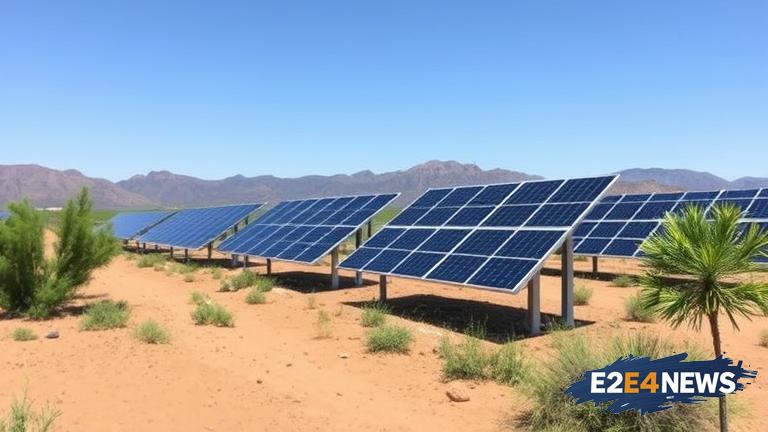Ada County in Idaho is in the process of revising its zoning code, with a particular focus on solar farms. The proposed changes aim to address concerns from residents regarding the visual impact and potential environmental effects of large-scale solar installations. As the demand for renewable energy sources continues to grow, Ada County is seeking to strike a balance between supporting sustainable practices and preserving the aesthetic and ecological integrity of the area. The county’s planning and zoning commission has been working on the updates, taking into account feedback from the community. One of the key considerations is the height and size of solar panels, with proposals suggesting stricter limits to minimize visual intrusion. Additionally, the commission is exploring ways to ensure that solar farms are sited in appropriate locations, avoiding areas of high conservation value or scenic beauty. The overhaul also includes provisions for decommissioning solar farms at the end of their operational life, to prevent abandonment and ensure that the land can be restored to its original state. While the updates are intended to provide clarity and consistency for developers, they also reflect the county’s commitment to responsible and sustainable development. The zoning code revisions are part of a larger effort to manage growth and development in Ada County, which has experienced significant population expansion in recent years. As the county continues to evolve, the need for comprehensive and forward-thinking planning has become increasingly important. The solar farm regulations are just one aspect of this broader strategy, which aims to protect the county’s natural resources, support economic development, and enhance the quality of life for residents. The proposed changes have been subject to public consultation, with opportunities for residents and stakeholders to provide input and feedback. This inclusive approach has helped to shape the revisions, ensuring that they reflect the needs and concerns of the community. The final version of the zoning code updates is expected to be presented to the county commissioners for approval in the coming months. If adopted, the new regulations will provide a framework for the development of solar farms in Ada County, guiding the industry towards more sustainable and responsible practices. The county’s initiative is seen as a positive step towards addressing the challenges associated with large-scale solar development, while also supporting the transition to renewable energy sources. As the world continues to grapple with the impacts of climate change, the importance of balancing economic, social, and environmental considerations has become increasingly clear. Ada County’s approach to solar farm regulation serves as a model for other jurisdictions, demonstrating the value of proactive and collaborative planning in achieving sustainable outcomes. The county’s commitment to transparency and community engagement has been instrumental in shaping the zoning code updates, fostering a sense of trust and cooperation among stakeholders. By prioritizing the needs of both the environment and the economy, Ada County is poised to become a leader in sustainable development, setting a precedent for other regions to follow. The ongoing debate surrounding solar farm development highlights the complexities and challenges associated with the transition to renewable energy sources. As the demand for clean energy continues to grow, the need for effective and sustainable solutions has become increasingly urgent. Ada County’s zoning code overhaul serves as a timely reminder of the importance of responsible planning and development, as the world navigates the challenges of the 21st century.





